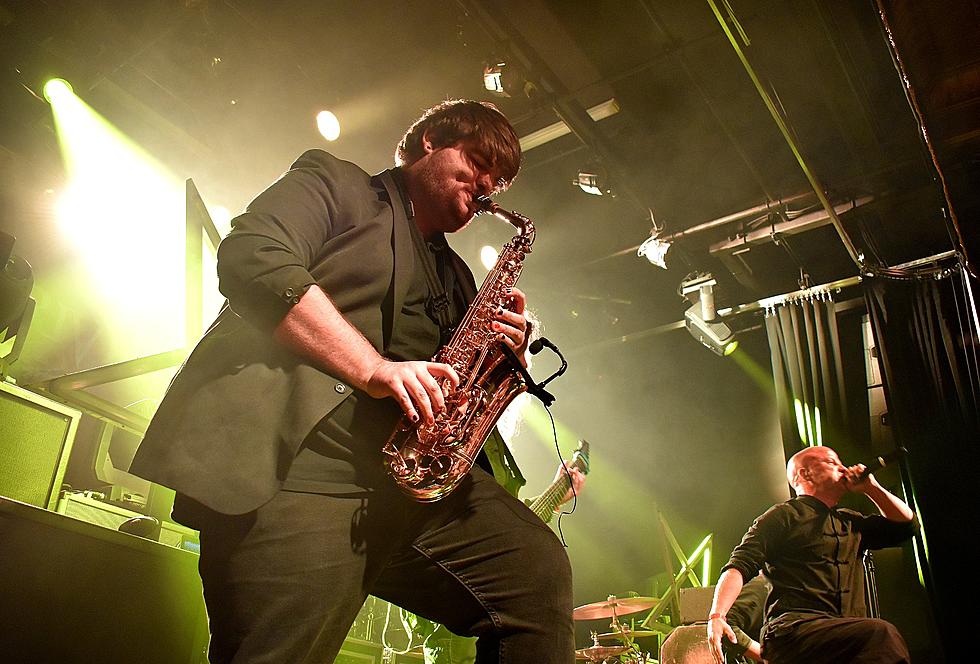
Ihsahn, ‘Das Seelenbrechen’ – Album Review
Ihsahn is one of extreme metal’s most revered and complete musicians. His work with Emperor speaks for itself, but one aspect many don’t account for is Ihsahn’s age when he released those four game-changing albums. In 2001, he folded Emperor in order to focus on other projects like Peccatum. Following Peccatum’s demise, he ventured into solo territory with his first album ‘The Adversary’ in 2006. The solo outfit Ihsahn is a blend of progressive metal with some black metal elements retained. ‘Das Seelenbrechen’ is the fifth studio album from the mastermind and is by far his most expansive work to date.
Ihsahn has stated that ‘Das Seelenbrechen’ is not indicative of a new direction he is taking with the band, but an offshoot in a different direction for the sake of this album only. Where some bands falter is when they release their experimental album, but pushing his own boundaries is where Ihsahn has always excelled. ‘Hilber’ opens the album in a traditional manner that begins all of his solo albums. The song is one of the heavier tracks here, but isn’t full-blown like you’d expect. Orchestral elements are solely heard towards the end of the song and you’re suddenly aware that this album will be more progressive than past Ihsahn albums.
‘Regen’ follows ‘Hilber’ and aligns itself more with King Crimson than anything black metal related. One of the highlights of the album is when the choir, consisting of Ihsahn’s layered voice, hits after the tom strikes in the climactic buildup that follows the piano-driven half of the song. ‘NaCl’ is one of the most straightforward songs on ‘Das Seelenbrechen’ and sounds like a modern progressive metal tune.
One constant element in play on this record is the tug-of-war between aggressive songs and softer, somber ones that take twists and turns. ‘Das Seelenbrechen’ is a guessing game and Ihsahn is absolutely unpredictable in his songwriting. After three radically different songs, we get thrown another curveball with ‘Pulse.’ The song sounds heavily influenced by Opeth’s ‘Damnation’ record and is calm and relaxed the whole way through. Just when you thought it was safe, ‘Tacit 2’ opens with Ihsahn’s signature shrieks and shatters the mood with something not unlike what we’ve heard from Australia’s Portal. ‘Tacit’ makes for a smooth transition from ‘Tacit 2’ (yes, ‘Tacit 2’ comes first) and incorporates more orchestral elements to the dark and volatile mood.
The second half of ‘Das Seelenbrechen’ has a much more consistent flow, which, again, is unexpected. ‘Rec’ is a short song that builds up heavier elements at the end with a sudden stop that sets up ‘M.’ This song is brooding in the beginning, but a sexy, bluesy guitar solo cuts through at the halfway point, giving a huge nod to progressive masters of the 1970s. ‘Sub Alter’ and ‘See’ make up the final two tracks here, with the latter crafting a suffocating atmosphere with its noisy effects and industrial ambient elements that extend the mood set up by ‘Sub Alter.’
Ihsahn’s live backing band is the Norwegian progressive metal outfit Leprous, and it seems like their influences have had a profound effect on Ihsahn over the last few years, finally culminating with ‘Das Seelenbrechen.’ Ihsahn has continued to explore his abilities as a songwriter and proves himself to be an elite musician, composing this progressive masterpiece on his own. It’s unfortunate that this direction is not a shift in Ihsahn’s style to be employed on future albums because it is one of his most dynamic and fascinating works across everything he has accomplished in his musical career.
More From Loudwire









